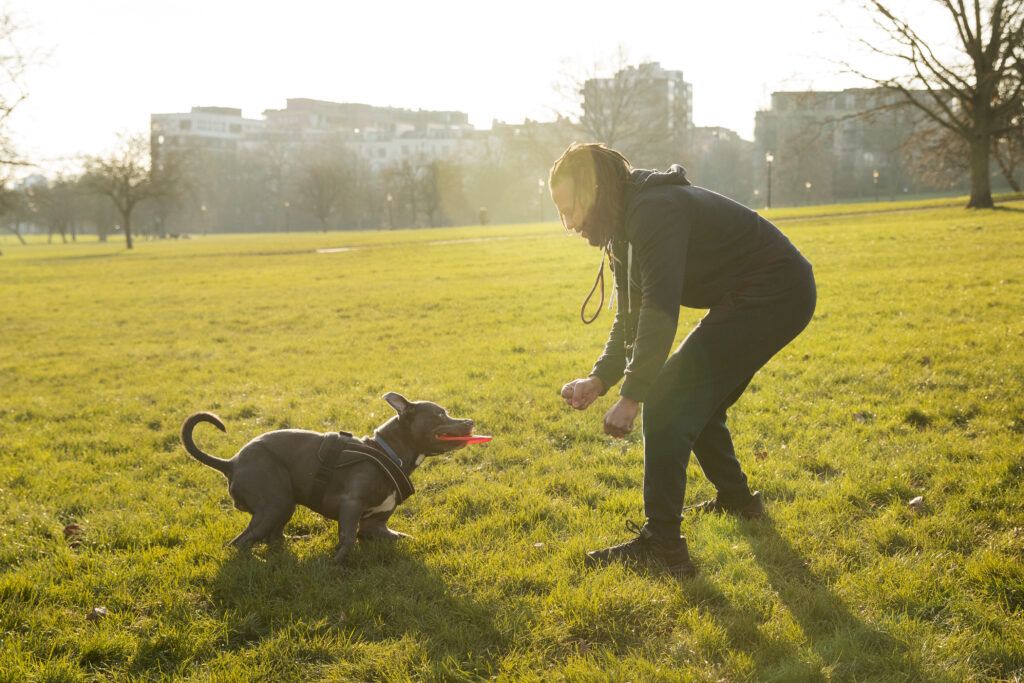The Ultimate Guide to Puppy Care: From Adoption to Adulthood
Welcoming a puppy into your home is an exciting and rewarding experience. However, it also comes with a significant amount of responsibility. Puppy care from adoption through adulthood makes sure your furry friend remains healthy, happy, and well-adjusted. Here is the ultimate guide to help you navigate the journey of raising a puppy.

1. Preparing for Adoption
Research Breeds and Sources Before adopting, research different breeds to find one that fits your lifestyle. Consider factors such as size, energy level, and grooming needs. Ensure you adopt from a reputable breeder or rescue organization to avoid potential health and behavioral issues.
Puppy-Proof Your Home Puppies are curious and can get into trouble quickly. Remove hazards such as toxic plants, electrical cords, and small objects they could swallow. Create a safe space for your puppy with a comfortable bed, toys, and access to water.
2. The First Few Days at Home
Establish a Routine Puppies thrive on routine. Set a schedule for feeding, potty breaks, playtime, and naps. Consistency helps your puppy feel secure and aids in training.
Vet Visit Schedule a veterinary appointment within the first few days to ensure your puppy is healthy and to discuss vaccinations, deworming, and flea prevention. Establishing a relationship with your vet early on is crucial for ongoing health care.

3. Nutrition and Feeding
Balanced Diet Feed your puppy a high-quality, balanced diet suitable for their age, size, and breed. Puppies require more nutrients than adult dogs to support their rapid growth and development.
Feeding Schedule Puppies typically need three to four meals a day. Stick to a regular feeding schedule to help regulate their digestion and potty breaks.
4. Training and Socialization
Basic Commands Start with basic commands such as sit, stay, come, and leave it. Use positive reinforcement techniques, including treats and praise, to encourage good behavior.
Socialization Expose your puppy to various environments, people, and other animals to build their confidence and reduce the likelihood of fear-based behaviors. Enroll in a puppy socialization class for structured interactions.

5. Health and Grooming
Regular Vet Visits Regular check-ups are essential to monitor your puppy’s growth and address any health concerns. Keep up with vaccinations, flea and tick prevention, and heartworm medication.
Grooming Routine Brush your puppy’s coat regularly to prevent matting and shedding. Bathe them as needed, and keep their nails trimmed and ears clean. Dental care is also vital, so introduce tooth brushing early on.
6. Exercise and Play
Physical Exercise Puppies have a lot of energy and need regular exercise to stay healthy. Short walks, play sessions, and safe off-leash areas are great for burning off energy.
Mental Stimulation Puppies need mental stimulation to prevent boredom and destructive behaviors. Puzzle toys, training sessions, and interactive games can keep their minds active and engaged.

7. Transitioning to Adulthood
Diet Changes As your puppy grows, their dietary needs will change. Gradually transition to adult dog food around one year of age, following your vet’s recommendations.
Adjusting Routines Adult dogs may need less frequent meals and different exercise routines. Adapt your care schedule to suit their changing needs while maintaining consistency.
Ongoing Training Continue training throughout your dog’s life to reinforce good behavior and address any new challenges that arise. Advanced training classes or activities like agility can provide additional mental and physical stimulation.

Conclusion
Puppy care from adoption to adulthood is a journey filled with joy, challenges, and growth. By following these guidelines and being attentive to your puppy’s needs, you’ll build a strong, loving bond that lasts a lifetime. Remember, every puppy is unique, so tailor your care to suit your furry friend’s personality and requirements. Enjoy the adventure of raising a happy, healthy dog!





